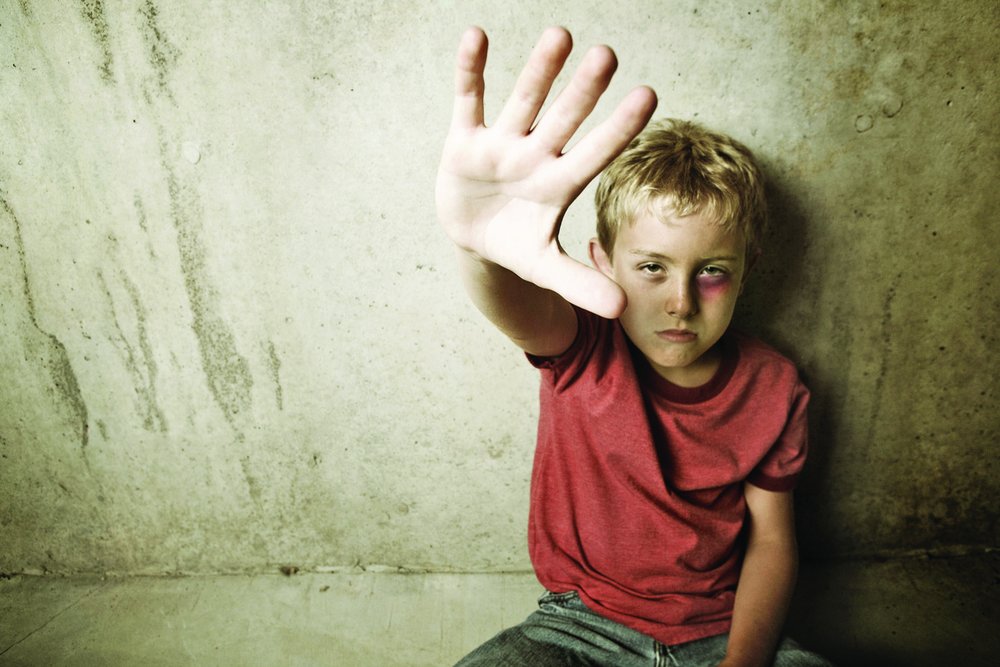Disregarding child abuse heightens social vulnerability

TEHRAN — Child abuse or child maltreatment, includes neglect, physical abuse, sexual abuse, exploitation and emotional abuse which would seriously harm a child or increase risks of serious harm to a child that could result in injury or death.
The maltreatment or neglect can be done by a parent or another caregiver at home, at school, or other communities the child might interact with.
As per a 2016 report by World Health Organization (WHO) a quarter of all adults report having been physically abused as children. One in 5 women and 1 in 13 men report having been sexually abused as a child.
Child abuse is a global problem with serious life-long consequences both for the child and the country. Consequences of child maltreatment include impaired lifelong physical and mental health, and the social and occupational outcomes can ultimately slow a country's economic and social development.
Once discussing a social problem one of the first solutions that comes to mind is to propose and activate legal mechanisms to address it. A bill on children’s rights has been proposed to the Iranian parliament in 1995 but it is yet to be adopted by the lawmakers.
Head of Iran’s Association of Social Workers has said that “Iran’s laws regarding children’s right are riddled with defects, we do not recognize children as citizens, we have to stand up for their rights and be their voices because they cannot fight for their rights on their own.”
“The law on children’s right is still being hammered out and it will be adopted by the end of the [Iranian calendar] month of Bahman (February 19),” YJC quoted MP Mohammad Kazemi as saying.
However, MP Tayyebe Siavoushi has told ISNA news agency that “the bill seems to be concerning with legal consequences of causing harm to the children after the damage is done rather than actually standing up for their right.”
As per the proposed bill parents who neglect, or physically, sexually, or emotionally abuse their children will both lose custody and face jail time as well as flagellation as a punishment.
The extent of the punishment or the duration of the jail time depend on the extent of the injuries the child has sustained. No further details on the other articles of the law is revealed.
Consequences of child maltreatment
According to WHO, child maltreatment causes suffering to children and families and can have long-term consequences. Maltreatment causes stress that is associated with disruption in early brain development.
Extreme stress can impair the development of the nervous and immune systems. Consequently, as adults, maltreated children are at increased risk for behavioral, physical and mental health problems such as: perpetrating or being a victim of violence, depression, smoking, obesity, high-risk sexual behaviors, unintended pregnancy, and alcohol and drug misuse.
Via these behavioral and mental health consequences, maltreatment can contribute to heart disease, cancer, suicide and sexually transmitted infections.
Beyond the health and social consequences of child maltreatment, there is an economic impact, including costs of hospitalization, mental health treatment, child welfare, and longer-term health costs.
Inefficient legal intervention
Hassan Mousavi Chelak, head of Iran’s Association of Social Workers, has explained that “unfortunately we politicize every issue even cases of child abuse and miss the social aspects of such bitter incidents.”
He also criticized inefficient legal interventions saying, “Iran’s laws regarding children’s right are riddled with defects, we do not recognize children as citizens, we have to stand up for their rights and be their voices because they cannot fight for their rights on their own.”
“We try to not to give coverage to child abuse news because children and their rights are not a matter of concern for us,” he regretted.
Treating child abuse legally and administrating punishment for the criminals do not help in curbing child abuse, he said, stating, child abuse is a social problem.
He further highlighted that centers for social emergency services have played a significant role in reducing child abuse.
Once parents learn to call 123 (a number for contacting centers for emergency social services in Iran) instead of contacting police many problems pertaining to child abuse and violation of children’s right will be resolved, he suggested.
Preventing child maltreatment requires a multisectoral approach. Effective programs are those that support parents and teach positive parenting skills. Such programs are effective at strengthening protective factors against child abuse. The earlier such interventions occur in children’s lives, the greater the benefits to the child and to society.
MQ/MG
Leave a Comment